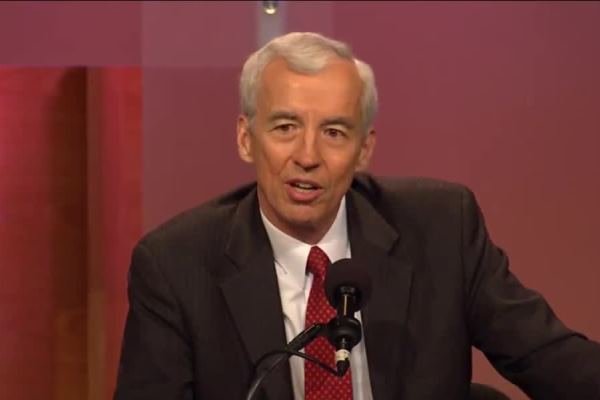Trump is a threat to liberalism: ex-senior CIA official

TEHRAN – Professor Paul Pillar, who was CIA intelligence analyst for 28 years, tells the Tehran Times that “Trump's actions certainly have been inconsistent with liberal principles and ideals.”
Pillar also says, “This is a matter not only of exiting treaties and agreements but also of rejecting the larger concept that there is such a thing as an international community and that its members have a common interest in certain rules and procedures.”
“Some senior aides of President Trump have explicitly rejected the idea of an international community. Trump does represent a threat to liberalism, although not necessarily a lasting one,” Pillar tells the Tehran Times.
Following is the text of the interview:
Q: According to Liberalism, international treaties and agreements are necessary for world security and stability. Some believe President Trump’s exit from international treaties is a threat to liberalism. What do you think of this?
A: Trump's actions certainly have been inconsistent with liberal principles and ideals. This is a matter not only of exiting treaties and agreements but also of rejecting the larger concept that there is such a thing as an international community and that its members have a common interest in certain rules and procedures.
Some senior aides of President Trump have explicitly rejected the idea of an international community. Trump does represent a threat to liberalism, although not necessarily a lasting one. He is one president, elected by a minority of Americans, who at some point will be succeeded by a different president who is apt to have much different inclinations.
Q: What can be the possible effects of Trump’s walking away from international treaties on international law and international legal customs?
A: On one hand, whenever a country as significant as the United States departs from a system of rules, this has to weaken to some extent the impact of the rules and confidence in them. On the other hand, the United States is still just one nation. On some of the most prominent agreements that Trump has been determined to abandon, the United States has been in a small minority or even alone.
On the Paris agreement on climate change, for example, the United States and Syria are now the only countries in the world that say they want to stay out of the agreement. Strength of numbers, and of a larger international consensus that does not include the current U.S. leadership, will keep many of these agreements going.
Q: The liberal order is basically based on multilateralism. Trump’s exit from Paris Climate Accord, TPP, NAFTA and possibly from the JCPOA is in contradiction with multilateralism. Can such an approach guarantee the U.S. power?
A: Nothing can guarantee U.S. power, and abandonment of these agreements certainly does not enhance it. There is a misconception, which the current U.S. president seems to have embraced, that undertaking commitments under international agreements somehow compromises a nation's sovereignty or independence. It does not. Entering an international agreement is an exercise of sovereignty on behalf of national interests that can be pursued effectively only in cooperation with others.
Q: Some say the regimes created after Second World War helped a lot to the U.S. hegemonic power and the creation of the U.S. favored orders, but now these regimes doesn’t serve the U.S. interest anymore, so the Trump’s measures to walk away from these regimes are very wise to weaken the regimes and exit. What do you think of this?
A: The post-World War II order, including international organizations dealing with trade, security, and other matters, has been very much in the national interest of the United States. That was true in the immediate aftermath of World War II, and it is still true today. The United States benefits--as do other states--from the prosperity, peaceful resolution of disputes, and other consequences that have flowed from that international order.
Many aspects of international relations have changed over the past seven decades, but the advantages of order rather than disorder continue. With its worldwide involvement and presence, the United States has at least as large a stake in the health of the international order as does any other country.
Leave a Comment